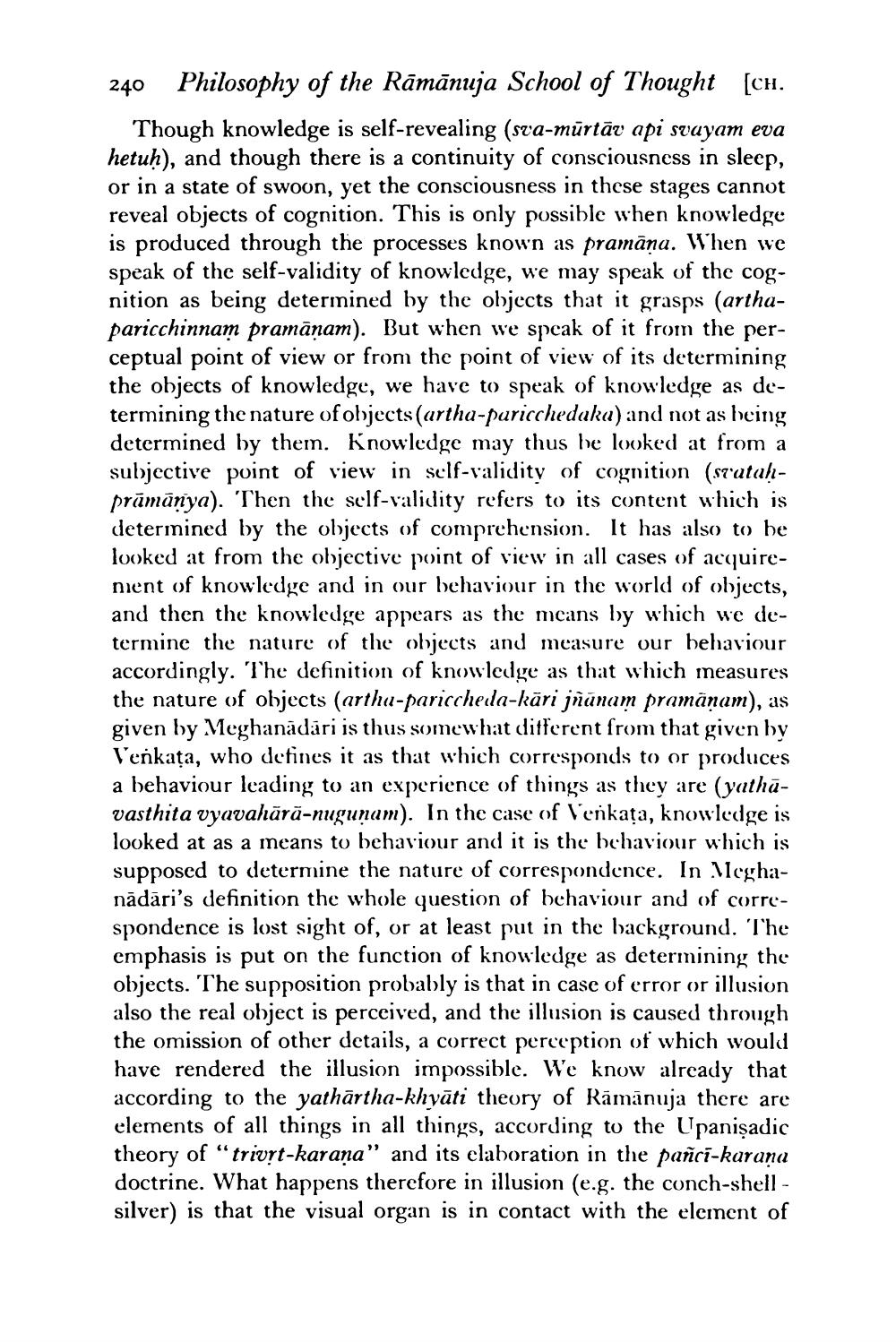________________
240 Philosophy of the Rāmānuja School of Thought [ch.
Though knowledge is self-revealing (sva-mūrtāv api svayam eva hetuḥ), and though there is a continuity of consciousness in sleep, or in a state of swoon, yet the consciousness in these stages cannot reveal objects of cognition. This is only possible when knowledge is produced through the processes known as pramāna. When we speak of the self-validity of knowledge, we may speak of the cognition as being determined by the objects that it grasps (arthaparicchinnam pramānam). But when we speak of it from the perceptual point of view or from the point of view of its determining the objects of knowledge, we have to speak of knowledge as determining the nature of objects (artha-puricchedakı) and not as being determined by them. Knowledge may thus be looked at from a subjective point of view in self-validity of cognition (statahprāmānya). Then the self-validity refers to its content which is determined by the objects of comprehension. It has also to be looked at from the objective point of view in all cases of acquirenient of knowledge and in our behaviour in the world of objects, and then the knowledge appears as the means by which we determine the nature of the objects and measure our behaviour accordingly. The definition of knowledge as that which measures the nature of objects (arthu-paricche.la-kāri jñānam pramānam), as given by Meghanādāri is thus somewhat different from that given by Venkata, who defines it as that which corresponds to or produces a behaviour leading to an experience of things as they are (yathāvasthita vyavahārā-nugunum). In the case of Venkata, knowledge is looked at as a means to behaviour and it is the behaviour which is supposed to determine the nature of correspondence. In Veghanādāri's definition the whole question of behaviour and of correspondence is lost sight of, or at least put in the background. The emphasis is put on the function of knowledge as determining the objects. The supposition probably is that in case of error or illusion also the real object is perceived, and the illusion is caused through the omission of other details, a correct perception of which would have rendered the illusion impossible. We know already that according to the yathārtha-khyāti theory of Rāmānuja there are elements of all things in all things, according to the Upanişadic theory of “trivrt-karana" and its claboration in the pañci-karana doctrine. What happens therefore in illusion (e.g. the conch-shell - silver) is that the visual organ is in contact with the element of




